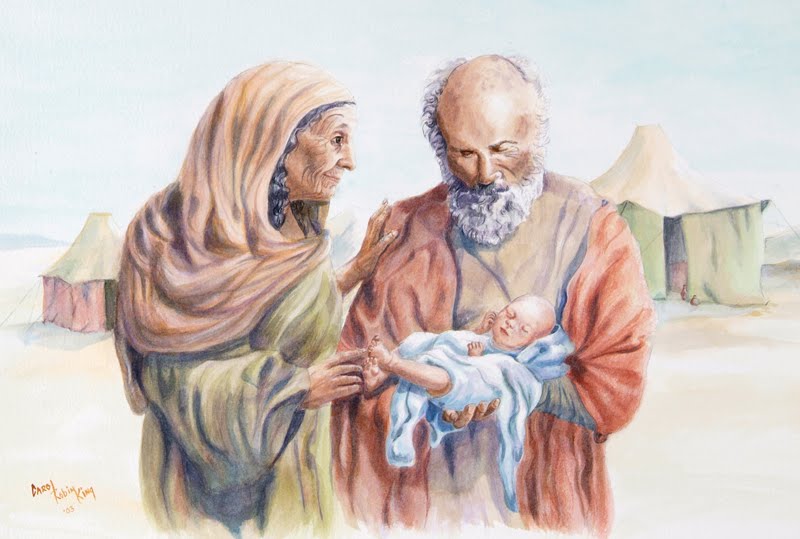Spiritual Health: The Goal of Wisdom by Kim Reisman

Scripture Focus:
Woe to the world because of the things that cause people to stumble! Such things must come, but woe to the person through whom they come! If your hand or your foot causes you to stumble, cut it off and throw it away. It is better for you to enter life maimed or crippled than to have two hands or two feet and be thrown into eternal fire.
Matthew 18:7-8 (NIV)
Earlier this month we explored the modern myth that knowledge and wisdom are the same thing. As Christians, we realize that this is not true; rather, we assert that wisdom includes, but also surpasses, knowledge. Wisdom is knowledge coupled with God’s love, presence, and purpose. A second myth is also important for us to explore; the myth that wisdom and knowledge are valuable for their own sake. From the biblical perspective this is completely false. Wisdom, as important as it is in and of itself, and as crucial as it is to the foundation of all the other virtues, is not an end of its own. The end toward which wisdom – and all the virtues – points is relationship with God, and spiritual wholeness and health. Wisdom is the means through which we gain a greater sense of personal wholeness and a restored relationship with our creator. It’s the means through which we redirect ourselves toward our created purpose, goodness.
Jesus was keenly aware of the role of wisdom in regaining our spiritual health. One of the crucial aspects of his message and ministry was to urge people to get smart about their spiritual health. “If your right eye causes you to sin, tear it out and throw it away!” (Matthew 5:29, NRSV). If you’re going to take the moral life seriously, make sure to surround yourself with good influences; if you value your safety, don’t run with a dangerous crowd. Paul echoed Jesus’ sentiment when he wrote to the Galatians, “Do not be deceived; God is not mocked, for you reap whatever you sow.” (Galatians 6:7, NRSV). We must be wise about our spiritual health. We must act in ways that protect, not endanger, our moral lives.
The Bible is one of the main tools available for us as we seek to use wisdom to bolster our spiritual health. Thomas Hobbes used the metaphor of a hedge fence to illustrate this. He talked about a highway where the king had planted hedges on either side. These hedges were not meant to stop travelers as they journeyed, but to keep them safely on the path. Jumping the hedge to take a short cut was always a possibility, but if you chose to leave the highway, you traveled at your own risk, taking the hazardous chance of traversing open country without the aid of maps and gambling with the possibility of encountering unforeseen dangers.
The Bible is our hedge as we travel on our spiritual journey. There are many places where the hedge is quite clear: the Ten Commandments, the Sermon on the Mount, the moral teaching throughout the entire book. We can always jump the hedge. But we do so at our own peril because then we enter open country, where there are no maps and many risks. Granted, there are many places where discerning the hedge is difficult because it’s sparse or indistinct. God’s
Word is not always clear, particularly as we attempt to apply it with integrity to our post-modern world. It’s easy to enter uncharted or poorly mapped moral territory. Yet, the existence of moral ambiguity shouldn’t be used as an excuse to jump over the clearly marked and well-defined hedges. Wisdom recognizes that there are moral principles that are always right and breaking them is always wrong.
Wisdom is badly needed in our world today. History has shown that when we rationalize our jumping off the hedges of morality, destruction awaits. Unfortunately, we are destroying the hedges and have made loopholes in God’s word. We have focused on right motive rather than on right behavior, on the love that is “in the heart” rather than on the love that has been shown to the neighbor. We have allowed the ends too often to justify the means; but, unfortunately, no one can accurately calculate all the consequences of our deeds. Wisdom understands that we need more than motives and consequences to guide us; we need hedges and a willingness to follow them.
Reverence for God is the beginning of wisdom. When we move from feeling that we ought to obey God to actually wanting to obey God, we have begun to cultivate wisdom and will begin to see the hedges that will foster our spiritual and moral growth and well-being.
Jesus’ parable about the two men who built houses sums up our discussion of wisdom well (Matthew 7:24-27). There were two men who each built a house. The wise man built his house on rock, but the foolish man built his on the sand. Eventually, storms came and destroyed the house on the sand, but the house built on rock withstood the wind and rain. Jesus tells us that the wise man, the one who built is house on the rocks, is the one who hears and obeys Gods word; and the foolish man is the one who hears but doesn’t obey. Wisdom guides us to build our houses on solid ground, the ground of faith with guidance from God. We must seek that wisdom. Our lives depend upon it.
Think about the hedge metaphor for the guidance available to us. What things or persons or experiences make up the hedges which mark and keep you on your life-path? I pray that you would continue to be aware of those markers and seek to build the house of your life on solid ground.
Subscribe
Get articles about mission, evangelism, leadership, discipleship and prayer delivered directly to your inbox – for free














